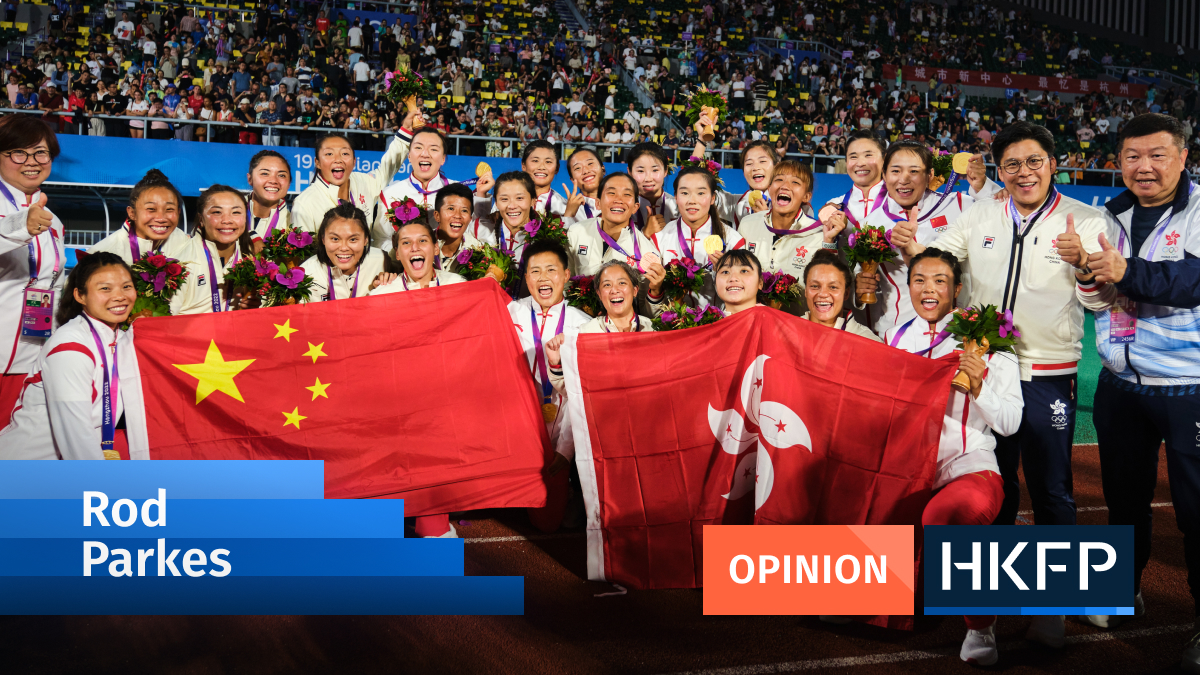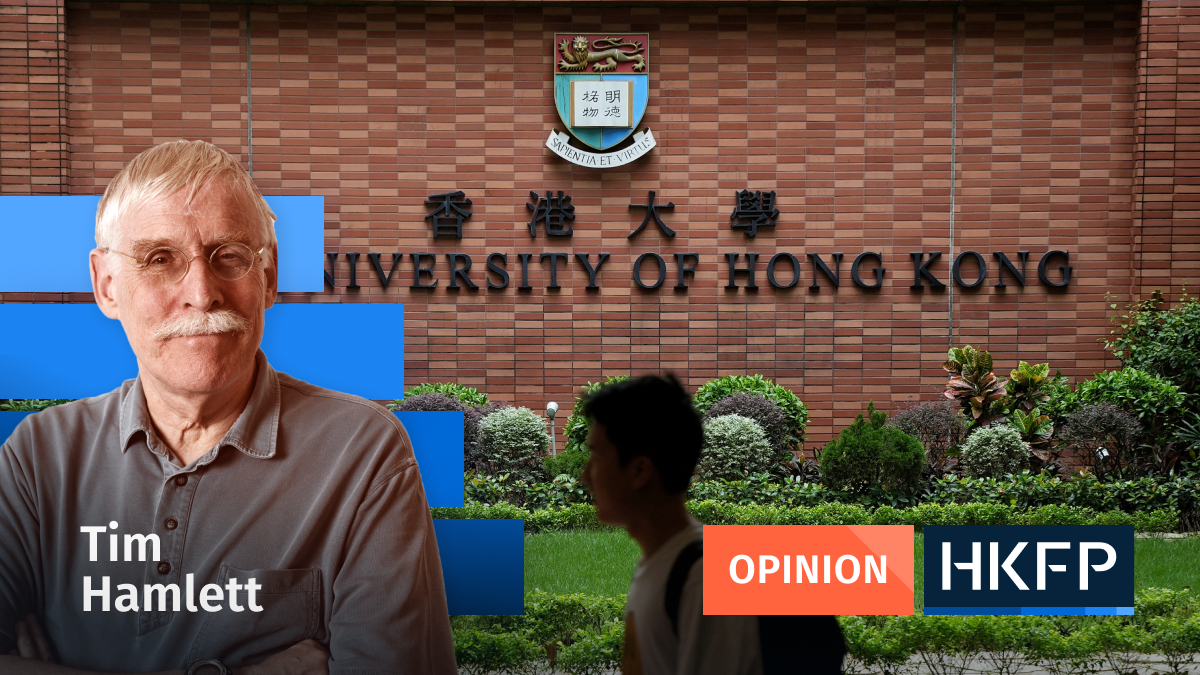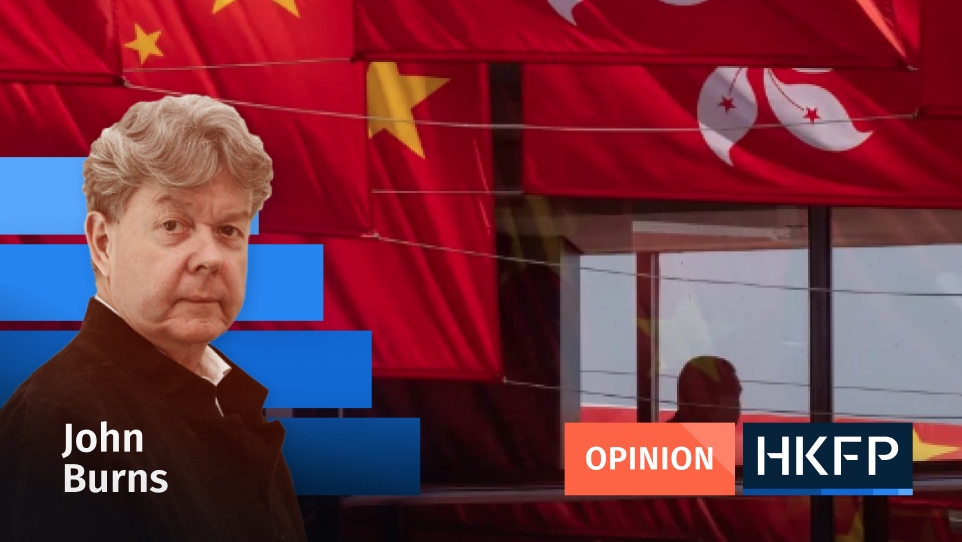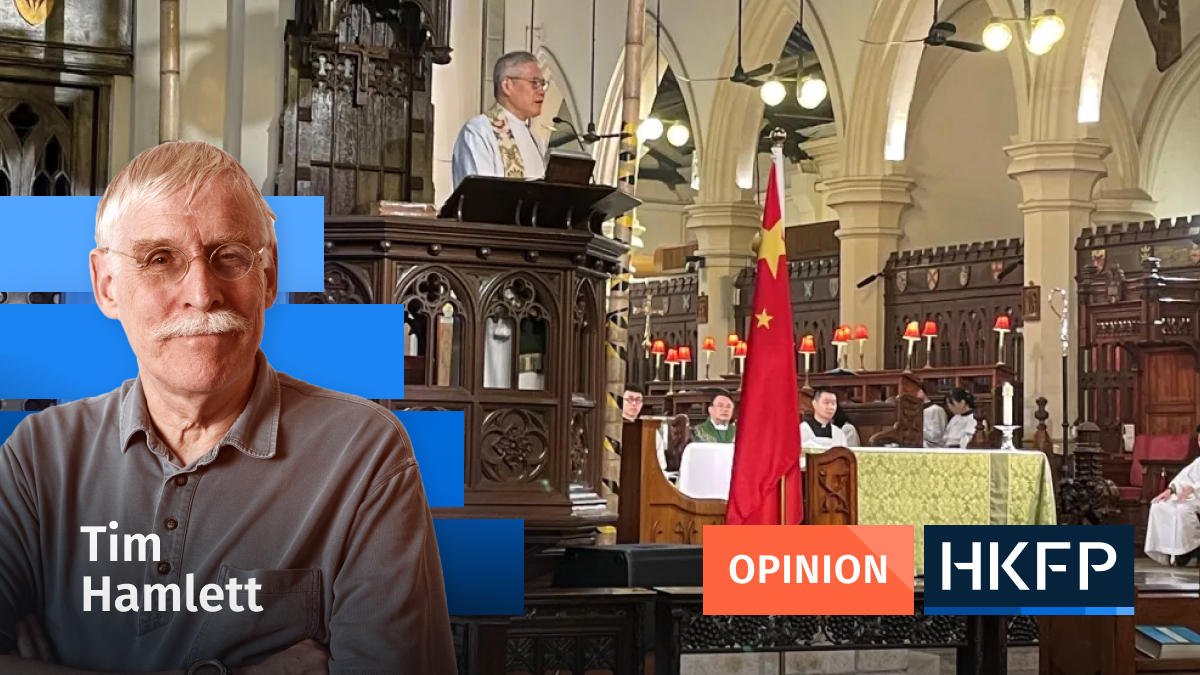The government’s attempt to sell its makeover of Hong Kong’s district councils has been something of a revelation. From the Legislative Council (LegCo) brief – there is no consultation document for the two-week consultation, now nearly over – and the comments of our political elite at press conferences, on the radio and in the media, we have a better understanding of how they view ordinary Hongkongers.
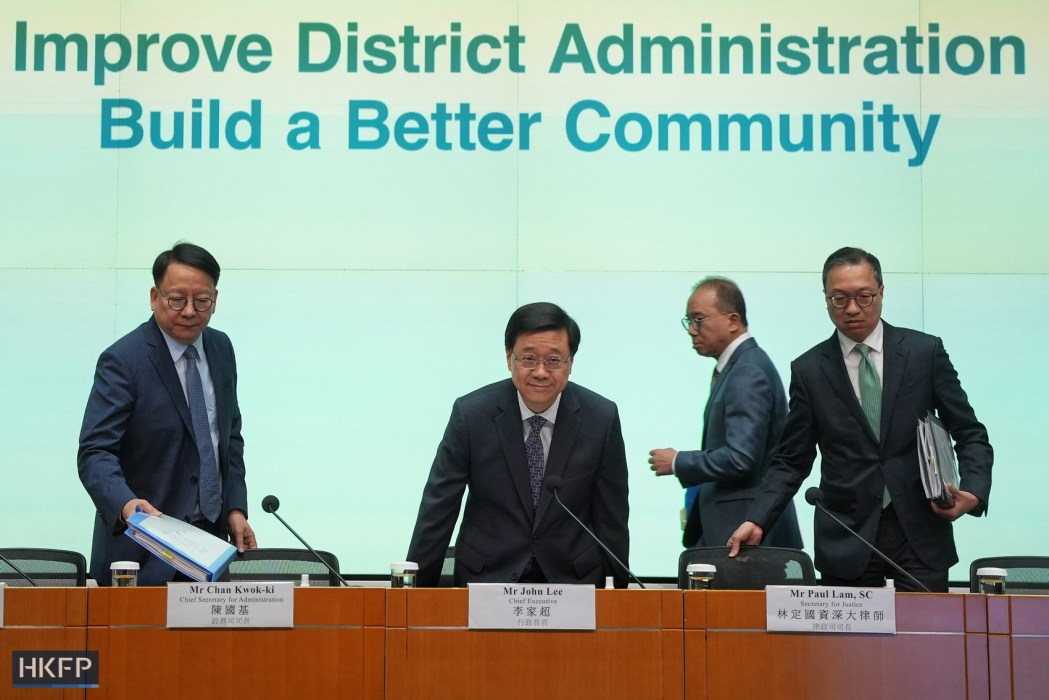
Firstly, at every opportunity, the government is attempting to rewrite history. Take the 2019 anti-government protests as an example. Our Chief Executive John Lee chastised a journalist for referring to the six months of protest, sometimes leading to violence and riots, as the “2019 protests”.
See also: Why District Council reforms are a positive step for the city
They were not, Lee said, protests but “black violence”, part of the government’s continuing campaign – without any publicly available investigation – to “blackwash” all of 2019. “We lived through that, and don’t forget it,” Lee added.
We were all here then, too, and know what went on.
At another recent press conference, he ignored a journalist’s question about the government’s own role in triggering the protests or perpetuating the violence. Plain clothes police at the protests also wore black.
Yet the government continues to use the 2019 anti-government protests as justification for fundamental changes to our political system, most recently revamping our District Councils, without any investigation into its causes. The government is supposed to be accountable to the HKSAR. Without such an investigation this accountability is only empty talk.
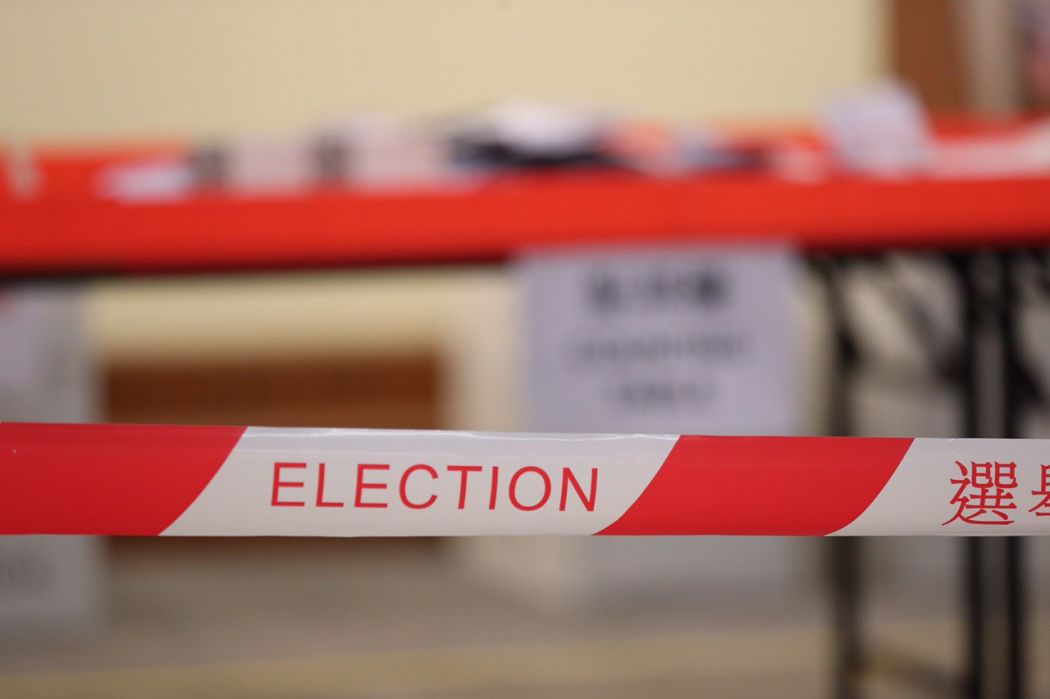
Secondly, in their campaign to convince us to support the District Council revamp, authorities have expressed grave doubts about the value of public opinion. The LegCo brief identifies one function of the councils as “collecting the views of the people” and listening to the views of “the people”. What exactly does this mean?
During his visit to Hong Kong, Xia Baolong referred to the value of “real” opinion. Regina Ip has denigrated “low quality” turnout that won the day in the 2019 District Council elections. Ip’s party won no seats then, but, she said, received more votes than they ever had before.
Ip points out that Hongkongers vote based on “charisma, fan base, and manifesto”. Undoubtedly many do, but in 2019 many more voted to show their strong dissatisfaction with the performance of the government that year. And this takes us directly back to what happened in 2019, that authorities are so desperate to blackwash.
When pro-establishment candidates won in DC elections as they usually did, were their victories also based on ‘low quality’ opinion? As Lam Miu Yan recently pointed out in Ming Pao, the problem authorities have is not with the electoral system itself, but with public opinion that does not support the government. So, their solution: marginalise public opinion until it uniformly supports us. This could take a long time.
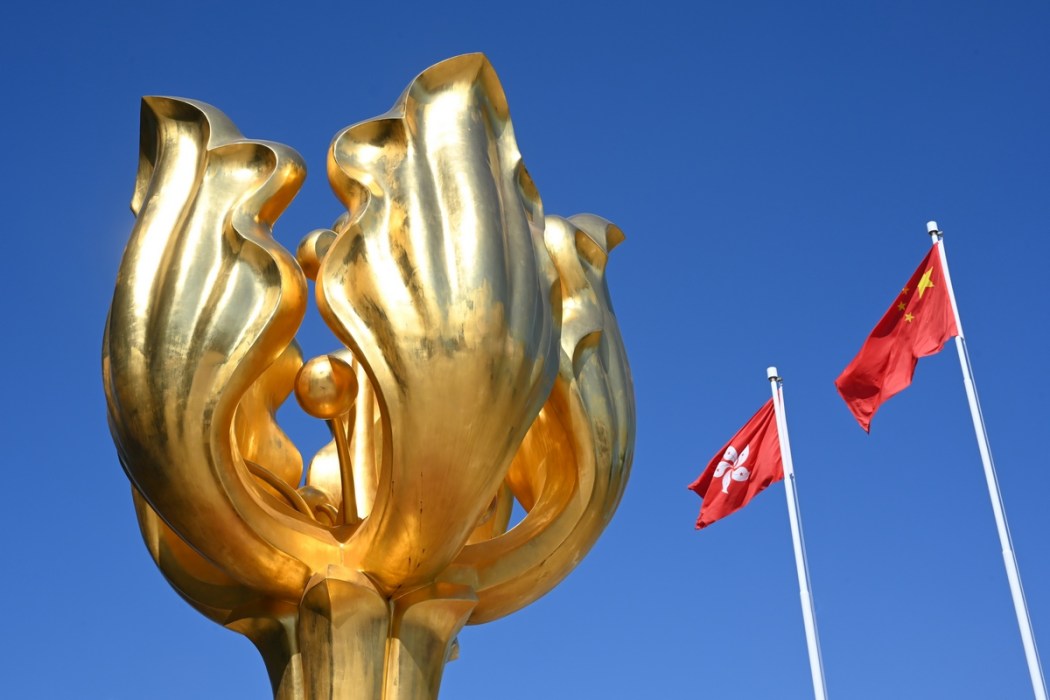
Thirdly, the LegCo brief also reveals that a function of District Councils is to support various government policies and assist the government in various activities. This can easily become cheerleading or rubber stamping, which I understand the government would not like to see. Yet given the authorities’ focus only on “real” and “high quality” public opinion, echo chambers are a likely result.
Fourthly, supporters of the District Councils revamp point out that appointed seats are necessary to give voice to key stakeholders in the district, especially professionals, who might not like the rough and tumble of elections. This would make them more representative, we are told.
Representation here only focuses on diversity of occupations – all “works” of life – not diversity of opinion. Says Ip: “What matters most is that the stakeholders in society can participate in district governance equally.” But these key stakeholders, local elites who are members of the “three committees” – area, fight crime, and fire prevention – already have many channels to voice their opinions, for example, through pro-establishment politicians. They can simply phone them, text them, and so on.
It is to represent the voices of ordinary people that universal suffrage and one-man-one-vote matter. We do not need appointed elites to give extra voice to those who already have access.

Finally, the LegCo brief decries the politicisation of District Councils and populism. The 2019 anti-government protests (this issue again) did not create conflict in society but exposed it. The revamp of the District Councils does not eliminate politicisation but restricts it to “real” or “high quality” opinion. Populism is the enemy of the elite. And our leaders recognise it.
We live in a society of high inequality, poverty, appalling housing for tens of thousands, lack of social mobility and a lack of pensions for the retired. Expectations of ordinary people for more civic participation and accountability are also legitimate. Elections can bring these issues into focus.
Of course, one-man-one-vote cannot solve everything. No reasonable person makes such a claim. But elections play an important part in providing voice for ordinary people, otherwise shut out of participation, on issues of concern to them. This is the authentic – read “real” – public opinion that authorities seem to be so afraid of.
Our leaders claim they want stability. As Xia Baolong has observed, Hong Kong’s stability is on the surface only; it’s fragile. To shut out the voices of ordinary people in the lowest level advisory committees, which is after all what the District Councils are, seems like an unwise move.
I wonder: do our leaders know what they are doing? We can only hope so.
Support HKFP | Policies & Ethics | Error/typo? | Contact Us | Newsletter | Transparency & Annual Report | Apps
| HKFP is an impartial platform & does not necessarily share the views of opinion writers or advertisers. HKFP presents a diversity of views & regularly invites figures across the political spectrum to write for us. Press freedom is guaranteed under the Basic Law, security law, Bill of Rights and Chinese constitution. Opinion pieces aim to point out errors or defects in the government, law or policies, or aim to suggest ideas or alterations via legal means without an intention of hatred, discontent or hostility against the authorities or other communities. |
Help safeguard press freedom & keep HKFP free for all readers by supporting our team

More HKFP OPINION:
HKFP has an impartial stance, transparent funding, and balanced coverage guided by an Ethics Code and Corrections Policy.
Support press freedom & help us surpass 1,000 monthly Patrons: 100% independent, governed by an ethics code & not-for-profit.


